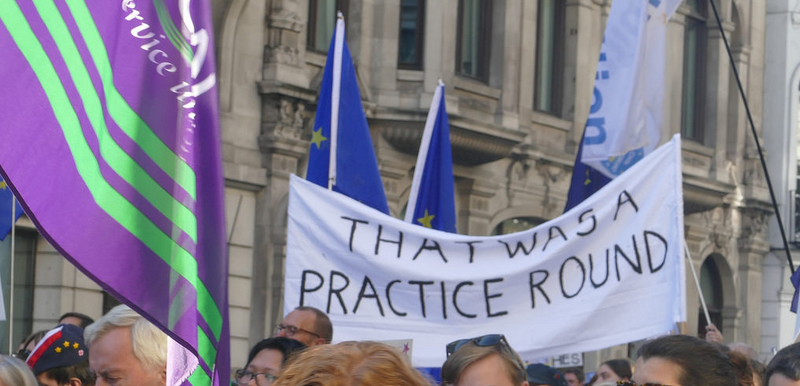Labour should back a People’s Vote, but need not explicitly back Remain

Back in December I wrote that trying to break UK party politics was not the way out of Britain’s Brexit conundrum. The events of this past 7 days underline this even more.
Back in December, 117 Tory MPs voted to No Confidence May as Tory leader. 118 voted against her Brexit deal in the Meaningful Vote. But not a single one – not one! – voted in favour of Labour’s No Confidence motion in the government as a whole. Whatever the Tories want, they do not want an election and they do not want to collaborate with Corbyn. Conversely Labour is not about to collaborate with May either, having refused talks with May unless she rules out No Deal.
This of course has not stopped all and sundry trying to appeal for cross-party solutions – Guy Verhofstadt notably today for example. Alex Stubb’s addition might just about crack it.
But let’s not diverge too far.
The only Brexit solutions are ones that allow party unity to not be tested.
Key to all of this is the Labour Party.
Like the Tories, Labour is split. It has some instinctive Brexiters (like Corbyn himself), some Brexiter pragmatists (those like Snell who represent strongly Leave-voting areas), and a large rump of Remain people (Starmer notable among them). In other words, the party could not really be united behind a Remain stance were a People’s Vote were to take place, and knowing that is the case is preventing the party broaching the referendum subject at the moment.
But consider the other options as a way of preventing No Deal Brexit instead, and they all come out worse for Labour – arguing for the extension of Article 50, or rescinding it completely, put Labour in the camp of sabotaging Brexit as a whole. And simply capitulating to Tory demands for a Brexit with a deal is out of the question. In other words all of these options look bad for Labour. The option that Labour wanted – a General Election – has been pretty certainly been ruled out.
So with all of that in mind, here is what Labour could do: back a People’s Vote now in Parliament, but not actually position the party to campaign one way or another when the referendum happens. Let MPs and activists decide what they want to do, how they want to campaign (or not), just as the Tories did in 2016 and – one presumes – will do in any further referendum as well.
Now this is not without its risks. The lack of party political backing was a problem in the 2016 referendum, and this would repeat the problem. But communicating this decision is quite easy – it goes like this:
- Parliament is deadlocked
- No Deal Brexit would be a catastrophe that has to be avoided
- The way out of this is to put the issue back to the people
- A vote gives either outcome – Remain or the proposed Brexit Deal – legitimacy
Once the referendum is out of the way, Labour then gets back to the normal partisan work of opposing the Tories.
This would be the best way in Parliament to get Labour MPs to back a People’s Vote and – with the backing of the couple of dozen Tories who also want such a vote – that might be just about enough to make a majority for it.
So what is Labour waiting for?
Wouldn’t the other answer be a free (unwhipped) vote in parliament? Which wouldn’t involve MPs having to go against their own party whips?